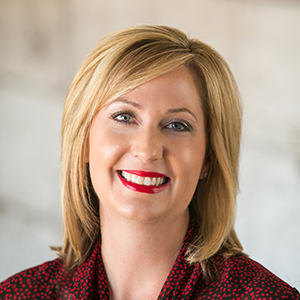Women In the Security Industry: Trends, Challenges and Advice
Jill Davie, TEAM Software by WorkWave, CALSAGA Network Partner
For security employers in today’s market, it’s important to understand the labor pool to encourage diversity in the workforce. Women in the security industry only represent 22.5% of the leadership roles and only 24.9% of guards, according to the U.S. Bureau of Labor and Statistics.
Moving closer to equal representation takes understanding the challenges in attracting and retaining women who want to work in the security field, while removing barriers to ensure that women can have an equal opportunity to climb up the professional ladder. According to several female leaders in the field services industry, there are a number of contributing factors that are creating barriers for women – both external and internal.
Overcoming gender biases and stereotypes
Gaining respect – particularly from male colleagues – is a critical factor for women across the field service industries. Historically, women have reported facing skepticism about their abilities, ideas or experiences both in the field and in leadership roles.
To overcome these barriers, it’s important for women to be assertive, express opinions and push back if needed – while employers can build an environment based on respect that fosters a culture where women’s opinions, skills and accomplishments are valued and recognized. The businesses that achieve this will reap the benefits of having access to different perspectives, strategies and process improvements.
“One of the biggest benefits of having women in leadership roles is that it creates a space for more overall diversity within your business. When your organization becomes an advocate for different perspectives, mindsets and collaboration, the sky’s the limit,” said Sharon Roebuck-McBride, the Senior Executive Vice President at Triangle Home Services.
Bridging the confidence gap
The confidence gap is a psychological phenomenon that often plagues the female workforce, where women generally feel less confident in their qualifications, skills and potential than men.
In typically male-dominated industries, this phenomenon can even be chalked up to the perception of the type of labor involved in a job and whether or not women can physically achieve the same outcomes as men on security patrols. Studies show that women who tend to underestimate their abilities take fewer risks and thereby miss opportunities for advancement.
To overcome this issue, it’s important to continue learning, celebrate achievements and cultivate a self-assured mindset. Taking these steps can help keep momentum high, instead of holding back from potential success.
“Sometimes, we are our own biggest barrier. Once we get out of our own way, recognize that our skill sets matter — our opinions matter — that’s how we’ll begin to break these perceptions down,” said Roebuck-McBride.
Advice for drawing in more female applicants
- Be Visible. Since the security industry is historically male-dominated, women may have trouble viewing themselves in some industry roles. That said, perceptions are always just that, which means they can change.
“We need both men and women in the industry. Everyone is important, no matter what your gender is, and women bring a different perspective to the table,” said Jenny Schoenfeld, Chief Operating Officer for ACT Security Group.
- Change your marketing. Adjust your job postings to attract a broader demographic. For example, making simple adjustments to job descriptions like, Have the freedom to run your own schedule or Do you like to work outside? or Do you like to work independently? can draw in more female applicants. Word of mouth is also huge, so you’re encouraged to leverage your existing team to help build your future team – all while fostering a more diverse work environment.
- Balance your business. While it may be tough to offer work from home arrangements in the security industry, providing employees with flexible work arrangements whenever possible to attract female job seekers, such as flexible scheduling, parental leave policies and even vocalizing how your business accommodates last-minute illness or daycare closure, may increase interest among applicants.
Businesses who foster an inclusive work environment reap numerous benefits – from having a greater pool of potential job candidates, to bringing new skill sets and experiences to the table.
Jill Davie, Chief Customer Experience Officer at TEAM Software by WorkWave
Jill Davie started full time with TEAM Software in May 1998 and has held various roles in Sales, Marketing, Communications, Customer Success and Professional Services. Currently, Jill serves as the Chief Customer Experience Officer at WorkWave where she is responsible for Customer Success Management, Professional Services and Customer Engagement. She is passionate about operational excellence, engaging directly with customers and attracting and retaining top talent with a people-centric culture.

